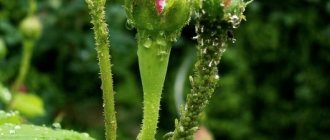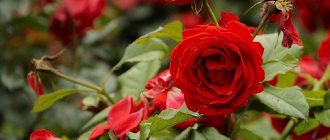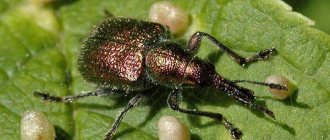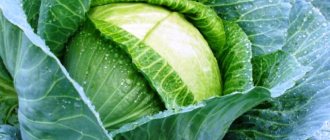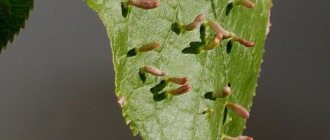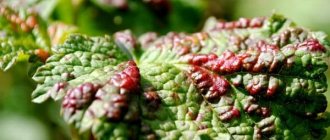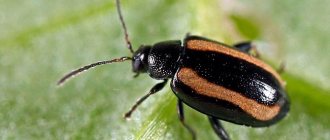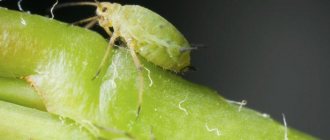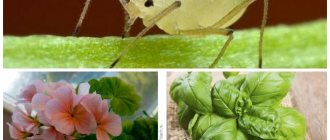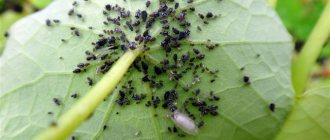Mustard is a great helper not only in the kitchen, but also in the garden. This plant not only enriches the soil, improving its structure, but is also used to protect various crops from harmful insects. One of these is aphids - the most common pest of gardens and vegetable gardens. This article will tell you how mustard is used against aphids and how effective it is.
It is no secret that one of the main reasons for the appearance of aphids on a plant is ants. They literally carry these tiny fleas on themselves, selecting new “uneaten” territories for them. The thing is that ants are attracted to honeydew - the liquid that aphids secrete during their life. This causes the leaves to become slightly shiny and sticky to the touch.
Mustard in the fight against aphids Therefore, in order to get rid of aphids, you must first of all expel the ants. You will find answers to questions about how much mustard you need, or how to prepare mustard to protect your beds and trees from pests in the recipes below.
External signs of aphid damage
External signs of damage are as follows:
- By sucking out the juices, aphids contribute to the deformation of buds and shoot tips. Sometimes damage begins with curling leaves.
- the entire plant is covered with a liquid, shiny coating with a sweetish taste. It is called honey dew. This is the favorite food item of black garden ants,
- the appearance of ants anxiously scurrying around all the vegetative organs of the rose bush indicates the arrival or hatching of eggs of a colony of aphids,
- The leaf apparatus of the rose becomes thin, curls, the leaves turn yellow, and the buds fall off without blooming.
TREAT WITH SOAP SOLUTION
An effective technique in the fight against aphids is treating rose bushes with a soap solution. The composition is prepared as follows: a piece of laundry soap is ground into shavings and dissolved in 10 liters of hot water. The resulting mixture should be generously sprayed onto the plants from a spray bottle. The bushes should be treated in this way at least once a week until the pest is completely destroyed. If necessary, soap can be replaced with dishwashing detergent or washing powder that does not contain phosphates. Five tablespoons per 10 liters of water is enough.
A popular folk remedy is laundry soap or any soap solution. The soap itself does not have any disinfectant properties, the mechanism of action is as follows:
Soap, like an alkaline solution, penetrates deeply into any surface.
Penetrating, the alkaline “sticky” soap molecule envelops any small particles, as if separating them from the surface.
The adhesion of particles to the surface is reduced, and water easily washes everything away.
How does it work with aphids? Soap washes away the waxy film from the insect, it becomes severely dehydrated and dies.
Soap solution for aphids on roses: Grate laundry or tar soap (200 g) and stir in a bucket with warm water (10 l). Instead of soap, you can take 5 tbsp. spoons of washing powder or dishwashing detergent.
MOST READ FROM PARTNERS
In fact, the proportion is simple, the soap solution should be the same as for washing. Spray the solution on the stems, buds and leaves of the rose. We repeat the treatment every week until the pests are completely gone. It is worth noting that you can either spray the plants with this product or simply wipe them with a soapy sponge.
Mustard fertilizer
Mustard can also be used as a fertilizer. One of the simplest and most effective ways is to sow mustard seeds between the rows of tomatoes, potatoes, and legumes. This will significantly reduce the likelihood of crops being affected by marshes and late blight.
Experienced gardeners recommend sowing mustard before planting the main crops. After it grows, its greenery should be buried when digging into the soil. Thus, mustard will become a natural fertilizer, enriching the crops with nitrogen, sulfur and phosphorus.
In addition, mustard rhizomes will begin to structure the top layer of soil and will serve as an excellent repellent against wireworms.
Interesting fact! Mustard is one of the most valuable honey crops. During the flowering period, it attracts a large number of pollinating insects, which is a big plus for garden and garden plants.
APHID LARVA BURN ON THE GROUND
The easiest and fastest way to get rid of aphids is manually. Rose bushes can literally be shaken. In this case, a significant part of the insects will fall to the ground. To eliminate the remaining pests, you can water the bushes from above using a watering can. Water will finally clear the roses of aphids, “draw” insects into the top layer of soil and deprive them of the chance to return to the plants.
Neighboring plants
There are plants that can repel or attract aphids, so you need to choose the right neighbors for roses. Sage, marigolds, mint, daisies, lavender, parsley and dill have strong aroma that these pests cannot tolerate. All of these crops are popular in most areas and are easy to care for. Growing them will not cause trouble, but will help to avoid damage to rose bushes.
Flowers that attract aphids should be planted further away from roses. These include begonia, petunia, cosmos, capuchin, mallow and decorative poppy. Among tree crops, these pests love viburnum, linden, mulberry and bird cherry.
TREAT WITH AMONGIA
Ammonia is no less effective against aphids. You need to dilute 50 ml in 10 liters of water. The prepared solution is used at least once every two weeks. First you need to spray the leaves, buds and stems. Then it is advisable to apply a small amount of the mixture into the soil under the plants. Ammonia acts as a nitrogen fertilizer and promotes abundant flowering of rose bushes.
Soap is a good remedy, but not the only one; its main advantage is that it is always at hand. But soap works like any alkaline solution, such as ammonia. Treatment with ammonia has an additional advantage - when it gets into the soil, the drug acts as a nitrogen fertilizer, promoting the lush flowering of roses. Since you are spending time spraying, let the flowers get the maximum benefit.
Ammonia for aphids: mix 50 ml of ammonia with a bucket (10 l) of soapy water.
Spray the leaves, stems and buds of roses with the resulting solution. Ideal for the budding and flowering stages of roses. We process once every 2 weeks.
Natural enemies
In nature, the enemies of aphids are some insects for which they serve as food. Among them are the following:
- ladybug is the main consumer, capable of destroying up to 50 aphids per day;
- sand wasp, cricket, cicada, ground beetle, tick (mite), ichneumon beetle, spiders.
Of the birds, tits and sparrows eat aphids in the largest quantities. Toads also feed on it.
To attract enemy insects, aromatic and spicy herbs are planted near the rose garden. Birds can be lured using feeders and drinkers.
USE ASH
Ash infusion is not only an effective remedy in the fight against aphids, but also an excellent fertilizer for rose bushes, because it contains many microelements for their active growth. The drug is easy to prepare: 400 g of ash is dissolved in 10 liters of boiling water and infused for 24 hours. Before use, add 1 tbsp to the infusion. l. grated soap or dishwashing detergent.
MOST READ FROM PARTNERS
If you want to pamper your roses, be sure to choose ash. The alkaline solution of ash is rich in “tasty” microelements, and your rose bush will definitely look prettier.
Ash from aphids: 250-350 g of wood ash, mix with a bucket of water, leave for 15 hours. Before use, add 1 tbsp. spoon of soapy detergent.
IMPORTANT. Do not use ammonia and ash treatments in the second half of summer - they enrich the soil with nitrogen and stimulate the active growth of roses, and it is time for them to prepare for winter.
Ways to use mustard in the garden
White mustard is of particular value to gardeners as a fertilizer and pest control agent. Its well-developed root system brings nutrients from the depths of the soil to the surface. With the onset of autumn, the mustard is mowed and left to rot right on the site or placed in a compost pit. Then all the accumulated nutrients are converted into a nutrient mixture.
Mustard accumulates nitrogen and phosphorus, which are necessary for the development of fruit crops. They are converted into a form that is easy for plants to assimilate and pass on to them. The plant contains essential oils and phytoncides that disinfect the soil when digging. Plant residues, when decomposed, provide food for soil microorganisms.
Summer without ants: a simple method without chemicals! Ants, which have been known since childhood as “forest orderlies,” in a summer cottage can cause a shortage of crops….
Growing mustard on the plot is useful for organizing proper crop rotation. This plant is sown in the fall after the harvest of tomatoes and cucumbers. The mustard plant destroys dangerous bacteria accumulated during the cultivation of tomatoes. Then in the spring you can plant tomatoes or cucumbers in the same area again.
SPRAY WITH BAKING SODA SOLUTION
Baking soda has proven itself to be effective against aphids. It not only destroys pests, but also improves plant immunity due to its bactericidal properties. It’s easy to prepare the solution: add 10 tbsp to 10 liters of water. l. soda and 250-300 g of grated laundry soap. It is recommended to add 1 teaspoon of iodine to the resulting composition. It is necessary for plants to quickly recover from aphid damage, as well as to protect against diseases. Treatment of roses with a soda mixture is carried out by spraying from a spray bottle. It is advisable to do this in the evening, in dry and windless weather. It is important to observe the frequency of spraying - once a week.
Mustard against wireworm
Wireworms are the larvae of click beetles. These insects infect potato tubers and gnaw long tunnels in them. Mustard is used to cleanse the area of them. Its seeds are sown between rows of potatoes. The plant repels pests with its smell, and thanks to its branched root system, it loosens the soil.
Wireworms live in the soil. Therefore, to protect against it, when planting potatoes, pour a little mustard powder into each hole. It will repel the pest and protect the crop.
You can use mustard plants as green manure. To do this, the seeds are sown after harvest or in the spring in April. The plant saturates the soil with its essential oils and phytoncides and gets rid of wireworms.
TREAT WITH TOBACCO
A very exotic, but effective method of getting rid of aphids is a product based on tobacco dust. You can make an infusion or decoction from it, or use it in its pure form, that is, dust roses. To obtain a decoction, 400 g of tobacco dust must be diluted in 9 liters of water and boiled for half an hour. The composition must infuse in a warm place for at least 48 hours. To make the mixture sticky, it is recommended to add 30-40 g of soap shavings to it. Bushes should be treated by spraying. To completely destroy the pest, the procedure must be repeated every 2-3 days.
Breeding and varieties
More than 90% of mustard sown areas in Russia are occupied by varieties bred by VNIIMK. The Institute is engaged in the selection and seed production of three types of this crop: Sarepta or gray mustard (varieties Zolushka, Nika, Yuno), white (Rainbow, Kolla, Ruslana) and black (Niagara).
Sarepta mustard is the most popular and most unpretentious. Potential yield is from 2.5 to 3 tons per hectare. Seed oil content is 46-49%, essential oil content is from 0.6% to 0.7%.
White mustard has a delicate, mild taste. She is highly valued in France - and in general outside Russia she is in crazy demand. Unlike Sarepta, white mustard contains 0.2% essential oil, shows a yield of up to 2.5 t/ha, and has an oil content of 28-30%. Due to its rapid growth rate, white mustard is most often used as a green manure crop.
Black mustard is the “spiciest”. The content of essential oils in it reaches 0.9-1.0% - and, apparently, that is why pests spare it. Black mustard oil is not used for food due to its high content of erucic acid (up to 40%).
APPLY INDUCTION OF PINE NEEDLES
With pine needles, roses are not afraid of any pests. An infusion of pine needles helps protect bushes from aphids. To prepare it, you need:
- Mix 1 kg of needles and 10 liters of hot water.
- Keep in a dark place for a week.
- Stir thoroughly daily.
- After 7 days, filter through gauze.
- Dissolve 200 g of soap in the resulting infusion.
Before use, this product is additionally diluted with water in a ratio of 1:4. It is enough to treat the bushes with the resulting liquid 1-2 times a month. Coniferous infusion will also protect roses from fungal infections.
SPRAY PEPPER SOLUTION
MOST READ FROM PARTNERS
Hot pepper helps rid roses of aphids. When it hits the surface of the leaves, it releases a pungent aroma that instantly repels small parasites. If pepper solution gets on the insect’s body, it will cause the pest to die. It is not difficult to prepare the solution. You need to take 1 kg of hot pepper pods, grind them in a meat grinder or finely chop them by hand. Then place the resulting mass in a bucket and fill with warm water. The result will be about 10 liters of pepper mixture. It should be mixed thoroughly and infused for 10 days. The resulting burning concentrate is diluted in 10 liters of water and 100 g of laundry soap is added. Treatment should be carried out by spraying the affected bushes with a spray bottle. The frequency is not regulated, but you should not repeat the procedure more than once a month.
TREAT WITH GARLIC INSTRUCTION
Another proven way to get rid of aphids from roses is spraying with garlic infusion. It is prepared in this way: 200 g of garlic with a small amount of husk is poured into 1 liter of boiling water and left in a jar or bottle in a warm room for 5 days, shaking the container 2-3 times a day. The resulting infusion is concentrated, so it must be diluted in the proportion of 100 g of the mixture per 5 liters of water. The prepared solution is used for spraying bushes. Treatment is carried out upon the appearance of the pest and until its complete disappearance. If you find aphids on your rose bushes, don't expect the problem to go away on its own. The fight against this insect must begin immediately, otherwise it will be difficult to get rid of it.
5 herbal infusions for treating rose bushes.
MOST READ FROM PARTNERS
Home remedies made from plants with a pronounced aroma are good for preventing aphids. When preparing these infusions, do not exceed the dosage so as not to cause burns to young shoots.
Tincture recipes (use 2-3 times per season):
- Tobacco. Pour 0.5-1 glass of tobacco into a bottle and pour boiling water over it. Let the solution sit for 24 hours, then filter through cheesecloth.
- Pine. Pour 1 kg of pine needles into 4 liters of boiling water, leave for a week and filter. Before use, dilute by half with water.
- Tomato/potato. Finely chop the tops of potatoes or tomatoes to make half a bucket, pour boiling water to the top of the container, and leave for 24 hours.
- Pepper. Cut 1 kg of young or 250-300 g of dry hot pepper into pieces, place in a bucket of water, and leave for 24 hours. Before use, dilute in proportions of 10 parts water to 1 part tincture.
- Garlic. Infuse 180-200 g of garlic in a liter jar of boiling water for 5 days. 2 tbsp. Mix spoons of the resulting solution with a bucket of water.
For better results, you can add 1 tbsp to herbal tinctures. spoon of soap shavings.
How to spray roses?
Just because folk methods use natural ingredients doesn't mean you shouldn't be careful with them.
Wear a thick, long-sleeved shirt and gloves to protect yourself from thorns. Set the sprayer to a wide spray rather than a narrow stream. Although a strong stream may knock some of the insects off the plant, you need to wet the pest. On roses, colonies often form on the buds and undersides of leaves, so spray these areas thoroughly.
Spray the liquid from a distance of 30 cm, starting from the lowest point where you notice the larvae and working your way up the rose bush. Apply products every 5-7 days until the bushes are clean. The best time to spray is a calm evening, so you will not harm bees and other beneficial insects.
Try the home remedy selectively on one branch first so that the plant responds well to it.
Choosing the right neighbors for roses in the country
Plants that attract aphids.
Some wild trees and shrubs intensely attract pests, so it is not recommended to plant them either in the garden plot or next to it.
Plants that attract aphids:
- viburnum;
- Linden;
- bird cherry;
- mulberry;
What's bad about the company? Wild trees wake up earlier, throwing out their tender green shoots and flowers, and hungry insects flock to them from all over the area, beginning their life cycle. At the moment when your roses wake up, the pest has already created a large population and is moving into your flower garden and vegetable garden. And in this situation it is difficult to fight only with folk remedies.
In addition, there are popular flowers that also attract pests. Of course, compared to shrubs and trees, they do this on a much smaller scale.
Flowers that attract aphids:
- Petunia
- Nasturtium
- Begonia
- Cosmea
- Poppy
- Mallow
Plant allies against aphids
Let's look for helpers in our struggle among the plants. You can plant fragrant herbs and flowers in the area next to the roses that the pest does not like.
Plants that repel aphids:
- mint, lavender, sage, thyme, dill, parsley and fennel
- marigolds and daisies.
Plants that distract aphids:
- clover, lupine or rapeseed.
How to kill aphids? Beneficial insects
Unlike ants, which spread pest larvae throughout the garden, ladybugs help fight it. One such insect destroys about 700 aphids in natural conditions. We attract the ladybug to the area with tansy, dill or chamomile.
And if you have dandelions on your site, they will attract lacewings, wasps, ground beetles, and wasps that eat the pest and its larvae.
We install poultry houses for sparrows, tits, kinglets, etc. The birds feed on these larvae and also feed their chicks with them.
Toads will save roses from aphids and ants
Having toads in the garden is a wonderful method: aphids and ants will simply disappear. Toads love these insects and will hunt them. While there are toads in the garden, you can simply forget about pest control.
To attract toads, place bowls with clean water in the shade under trees - they need something to drink. This method is used in the largest rose gardens in the world.
Varying control methods keep insects from becoming resistant to a particular toxin. Alternate all the methods you know to control rose pests. If one method is used predominantly, the surviving individuals pass on their qualities to the new generation, creating a more stable population.
Typically, after the first aphid infestation in May/June has been successfully repelled, natural predators such as ladybugs, wasps and toads help keep insect numbers in the garden under control.
Even the best folk remedies can lead to dehydration of the surface of rose leaves (they wash off the moisture-retaining wax coating from it, just like with aphids) and can harm beneficial inhabitants of the garden, for example, bees. Therefore, treat only those areas where there are aphids, and sometimes it is more effective to simply wash off the larvae with a sponge and soap than to mindlessly spray the entire rose bush.
ACTUAL NEWS
You may also find the following materials useful:
- 7 options for automatic watering for flowers without your participation - how to save plants from drying out during the holidays?
- If the rose did not overwinter well
- How to care for roses in summer
- Why don't irises bloom?
- What to do with tulips after flowering?
general information
Aphids are a small but dangerous pest of garden crops. The size is only a few millimeters. Phytophage. It has a proboscis that pierces the surface of the stems and leaves, allowing access to the plant juices. There are winged and wingless representatives. Some species lay eggs, while others are viviparous. They secrete a lot of sweet solution - honeydew, which attracts other pests - insects and vertebrates. Life cycle:
- spring: the appearance of a larva from the egg, which feeds on plant sap →
- her molt →
- summer: parthenogenetic reproduction resulting in wingless females →
- after lignification of the stems, winged females are born (for migration) →
- autumn: birth of winged males.
The color is different and depends on the type of insect, age and habitat:
- black aphids are the most noticeable and easy to detect;
- white - almost transparent, with a slight milky tint;
- green aphids are the most problematic, as they successfully disguise themselves as greenery.
If a rose is covered in aphids, it needs to be rescued urgently, because insects feed on their sap. They spread viruses between them. They form galls - pathological growths on the leaves (less often on other parts), inside which certain insect development cycles take place.
